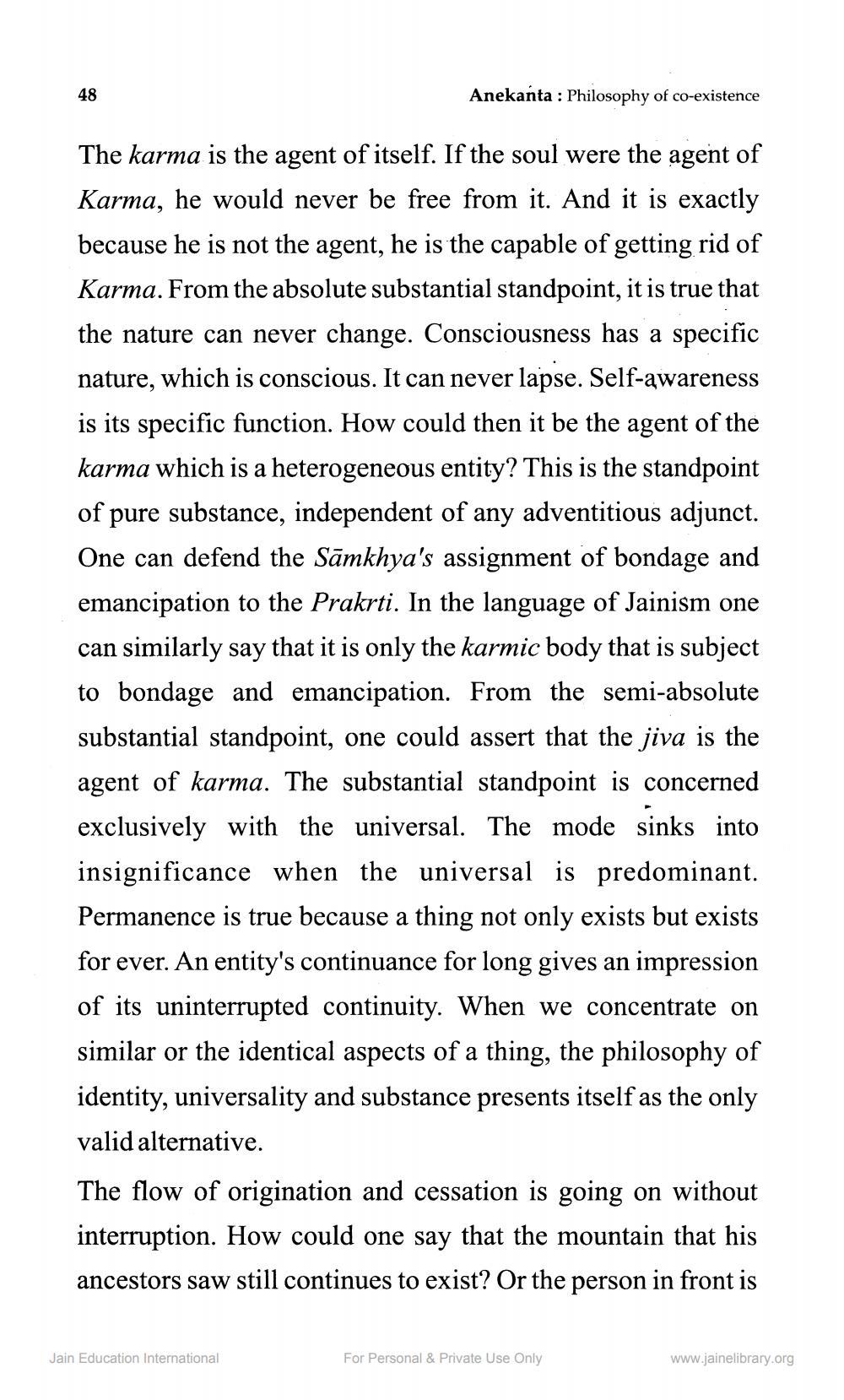________________
Anekanta : Philosophy of co-existence
The karma is the agent of itself. If the soul were the agent of Karma, he would never be free from it. And it is exactly because he is not the agent, he is the capable of getting rid of Karma. From the absolute substantial standpoint, it is true that the nature can never change. Consciousness has a specific nature, which is conscious. It can never lapse. Self-awareness is its specific function. How could then it be the agent of the karma which is a heterogeneous entity? This is the standpoint of pure substance, independent of any adventitious adjunct. One can defend the Sāmkhya's assignment of bondage and emancipation to the Prakrti. In the language of Jainism one can similarly say that it is only the karmic body that is subject to bondage and emancipation. From the semi-absolute substantial standpoint, one could assert that the jiva is the agent of karma. The substantial standpoint is concerned exclusively with the universal. The mode sinks into insignificance when the universal is predominant. Permanence is true because a thing not only exists but exists for ever. An entity's continuance for long gives an impression of its uninterrupted continuity. When we concentrate on similar or the identical aspects of a thing, the philosophy of identity, universality and substance presents itself as the only valid alternative. The flow of origination and cessation is going on without interruption. How could one say that the mountain that his ancestors saw still continues to exist? Or the person in front is
Jain Education International
For Personal & Private Use Only
www.jainelibrary.org




